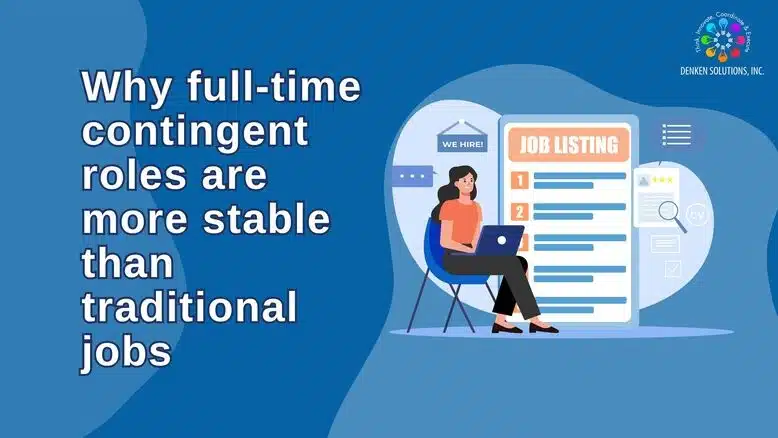As the demand for cloud services grows in every industry, so does the need for implementing sophisticated cloud technology and qualified cloud engineers. Cloud engineering can sound both mysterious and fascinating, but what does it mean? What does it entail? To learn more about cloud engineering, it’s important to start with an understanding of what it is, what skills are involved, and the scope of it in the future. This comprehensive guide covers everything you need to know about the responsibilities of cloud engineers, as well as their skills and salary information, , and how these roles differ from others like Java developer job descriptions or data scientist job descriptions in the tech landscape.
What is cloud engineering?
Cloud engineering is the process of designing, building, and maintaining cloud computing systems. It is dealing with all IT technologies related to cloud computing in a system. This process involves lots of methodological strategies in dealing with existing infrastructure and improvements in the system. Cloud engineering enables cloud storage, migration, and all other cloud implementations to work efficiently, much like in roles aligned with Project Management Professional standards.
Cloud engineer job description
A cloud engineer is a person who is in charge of the design, planning, management, and maintenance of an organization’s cloud-based systems and processes. They work with various applications, hardware, and networks to help manage cloud-based resources. They are responsible for the maintenance and stability of cloud computing infrastructures, and they make sure that cloud-based applications are operational and working properly. A cloud engineer should be able to identify the vulnerabilities in the existing system and capable of discovering advanced cloud solutions.
Cloud engineer responsibilities
If you’re interested in becoming a cloud engineer, there are a few things you should know. A cloud engineer is responsible for the implementation, configuration, and maintenance of an organization’s cloud computing infrastructure. Additionally, they may be responsible for managing data security and ensuring compliance with regulatory standards.
Let’s list the responsibilities of a cloud engineer.
- Interact with customers, deliver cloud support, and propose changes depending on their needs.
- Collaborating with development, technical, and engineering teams to analyze cloud solutions.
- Make sure data storage and process operations work efficiently in compliance with organizational security policies and best cloud security practices
- Educating team members on new cloud technologies and all initiative strategies.
- Design, build, and deploy modular cloud-based infrastructure
- Review existing systems on a regular basis and provide ideas for enhancements.
- Develop and operate cloud systems that adhere to best practices.
- Identify, investigate, and rectify the infrastructure defects and application deployment vulnerabilities.
- Evaluating and refining the existing and ongoing systems.
Cloud engineer skills
A successful cloud engineer must have strong technical skills and be able to work with a variety of teams to ensure that the system meets the needs of the business to deliver top-quality cloud services. Because of the technological complexity involved, this can be a challenging job to perform, and it requires knowledge of several different areas, including systems management, networking, and data storage.
Have a look at the skills which are necessary to get recognized as a competitive cloud engineer in the industry.
- Linux: A strong understanding of the Linux operating system, which companies frequently use for cloud development. Cloud engineers should understand the architecture, maintenance, and administration of Linux servers.
- Experience in working with cloud-based technologies: This could include experience working with Amazon Web Services (AWS), Microsoft Azure, or Google Cloud Platform (GCP).
- Database skills: Cloud database management skills and knowledge of MySQL and Hadoop.
- Programming skills: Deep general programming skills, along with knowledge of programming languages such as SQL, Java, Python, Ruby, Golang, PHP, and .NET.
- Networking proficiency: Clear understanding of virtual networks and general network management functions.
- Knowledge of DevOps: DevOps is a popular framework for cloud engineering, so having a hands-on understanding of DevOps practices can be valuable to employers. Amazon Web Services (AWS) DevOps in particular is a sought-after skill by cloud providers.
- Containerization tools knowledge: Proficiency in containerization tools and understanding of Docker and Kubernetes.
- Virtualization skills: Insightful knowledge to deploy and run application software on virtual machines.
- Understanding of cloud providers: As technical cloud features and engineering practices can vary between different service providers, understanding what each offers can enhance a cloud engineer’s knowledge and make them more marketable to employers.
- Expertise in security and recovery: Cloud security is a growing priority among providers and knowledge of cybersecurity in the context of the cloud is a valuable asset.
- Web services and application programming interfaces (APIs) familiarity: Informative awareness of open standards, such as XML (Extensible Markup Language), SOAP (Simple Object Access Protocol), WSDL (Web Services Description Language), and UDDI (Universal Description, Discovery, and Integration), and an understanding of how APIs are engineered.
Important cloud engineer certifications
Getting certified is the best way to acknowledge your cloud skills and proficiency in the cloud industry to attract vast career opportunities and top companies across the globe. Cloud certifications can demonstrate your knowledge and expertise in designing, developing, deploying, troubleshooting, and framing cloud solutions to the employer clearly.
Following are a few major cloud certifications in the industry now.
- Google Cloud Certification (Foundational, associate, professional certifications)
- Microsoft Certified Azure Solutions Architect Expert (AZ-305)
- Microsoft Certified DevOps Engineer Expert (AZ-400)
- Certified cloud security professional
- Microsoft Certified Azure Security Engineer Associate (AZ-500)
- Microsoft Certified Azure Fundamentals (AZ-900)
- Microsoft Certified Azure Administrator Associate (AZ-104)
- AWS certified cloud practitioner certification
Cloud engineer salary
The cloud computing industry is one of the fastest growing industries out there, with high-paying jobs in all different areas of expertise being plentiful. The average salary for a Cloud Engineer is $145,532 per year or $70 per hour in the United States according to major salary studies and surveys. Gaining certifications and building skills can boost earning potential for cloud engineering professionals. As a best staffing company in the USA, Denken Solutions connects candidates with high-paying IT roles, including sought-after cloud engineer positions.
Why Denken Solutions for cloud engineer jobs near you?
In order to find the best IT jobs, you’ll need to be on top of your game, including keeping up with the latest high-paying IT jobs, knowing how to spot valuable IT job openings, and determining how you can stand out from other candidates during the application process. You’ll also need some guidance on how to improve your skills as an IT professional and increase your chances of success in this ultra-competitive field. Denken Solutions has tied up with top IT companies and presents numerous cloud engineer jobs for qualified candidates. Apply for the latest openings and get connected with an expert recruiter to guide you in getting placed.




